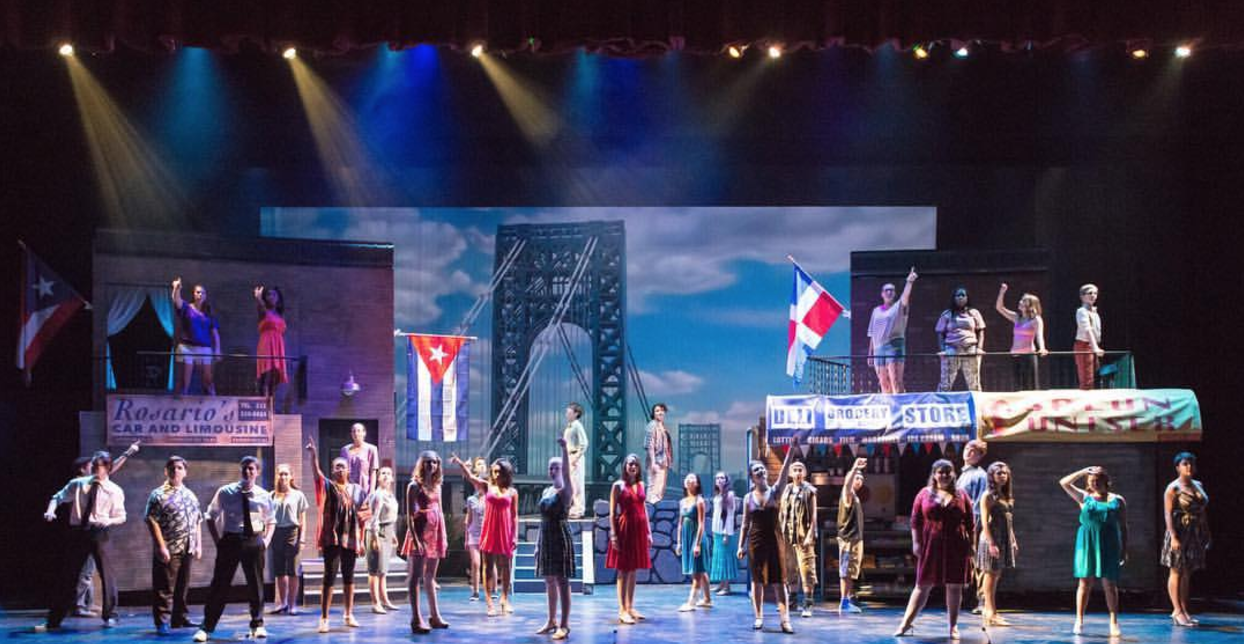This past summer, after months of preparation, Wellesley Theatre Project performed their version of Lin-Manuel Miranda’s play In the Heights. The show takes place over the course of three days in the New York neighborhood of Washington Heights, and tells the story of a tight-knit Latino community. At the end of each show, the cast was met by standing ovations and deafening applause.
The day after the performances ended, however, Facebook exploded with comments criticizing the show for being insensitive and racist. A former student of Wellesley High School, Lexie Lehmann ’16, made a post calling out Wellesley Theatre Project for choosing to put on a show with Latino characters that was performed by a primarily white cast.
This issue of white actors being cast in parts written for people of different ethnicities, commonly known as ‘white-washing,’ is a problem that has occurred in other versions of Miranda’s In the Heights, at both the high school and professional level.
While the comments on Facebook were more of an attack on the choice of WTP to perform the show, rather than the actors themselves, the accents and clothing used to portray Latino culture were found offensive by some. Many people brought up the argument that white students should not be depicting a culture which was not their own.
In an article quoted in the comments, one blogger explained this side of the controversy. “It is okay for a white high school cast to do In the Heights. It is even okay for white or non-Latinos/as to relate to its story. But it is not their story, and they must fully understand that as a white cast, it will be impossible for them to deliver a production of In the Heights with the same amount of cultural and emotional depth and ownership as a Latin cast would… They are paying homage — and whether their homage is respectful or not fully depends on how successfully the directors and cast are able to acknowledge their privilege and realize that they are borrowing a story, not telling it,” said Patricia of Call Me Patricia.
While some audience members clearly thought the directors were not successful in this sense, leading to a show that disrespected Latino culture, Wellesley Theatre Project and its actors stood firm with their decision, saying that putting on the show was an educational experience for the students in learning about Latino culture.
“We couldn’t be more proud to have brought this show to our community. [Lexie’s] points are exactly the reason we chose this show for this current season. Now is the time for this story to be heard. We would never go against an author’s intent. Secondly, we would like to thank [Lexie] for creating this dialogue. It is a conversation and topic that is currently being discussed on a local and global stage. As it should be with regards to professional productions, films, etc. Our production however, is an educational one,” said Wellesley Theatre Project. “Therefore, we stand behind our choice to do it and feel that in all conversations about this topic, there is always the comment that educational level productions should not and are not held to the same strict regiment. Nor should they be included in the dialogue.”
As WTP said, the author’s intent always wins, and in this case, Miranda intended In the Heights to be an educational show.
“The joy of In the Heights runs both ways to me, When I see a school production with not a lot of Latino students doing it, I know they’re learning things about Latino culture that go beyond what they’re fed in the media every day. They HAVE to learn those things to play their parts correctly. And when I see a school with a huge Latino population do Heights, I feel a surge of pride that the students get to perform something that may have a sliver of resonance in their daily lives,” said Miranda, in an interview with the Educational Theatre Association after controversy first arose in 2014 about the race of actors performing In the Heights.
Both Wellesley Theatre Project and Miranda himself urge people to also remember this was a high school performance, and Miranda understands that at the high school level, his shows will be performed by students not necessarily the race the part was written for.
Said Miranda: “I’ve said this a million times, but it bears repeating: high school’s the one chance you get, as an actor, to play any role you want, before the world tells you what ‘type’ you are. The audience is going to suspend disbelief: they’re there to see their kids, whom they already love, in a play. Honor that sacred time as educators, and use it to change their lives. You’ll be glad you did.”

